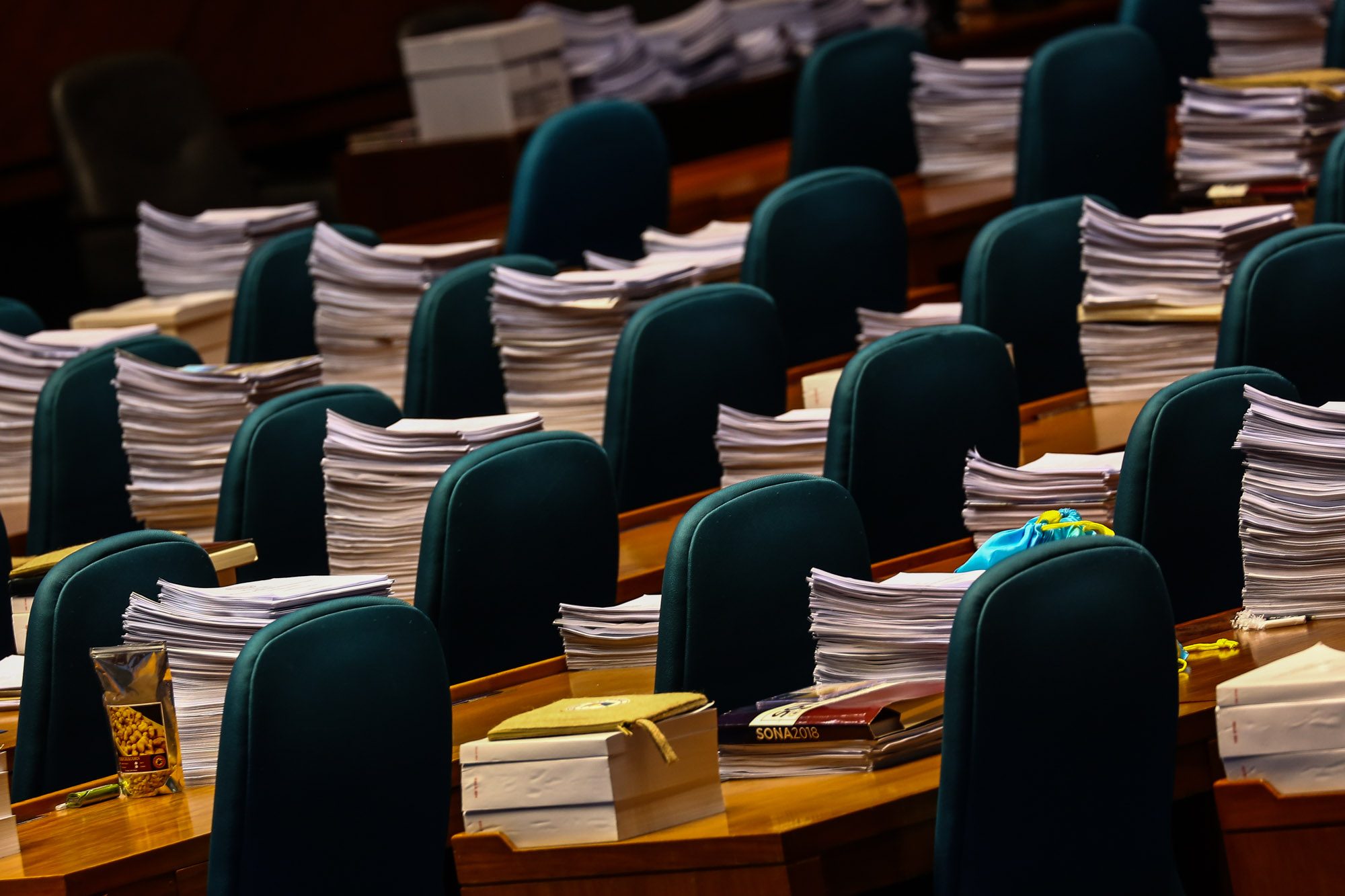SUMMARY
This is AI generated summarization, which may have errors. For context, always refer to the full article.

MANILA, Philippines – In a bid to reduce paper consumption, the House committee on rules is currently studying a proposal to digitize the legislative process by providing a tablet each for the 300 legislators.
Senior Deputy Majority Leader Jesus Crispin “Boying” Remulla told Rappler on Thursday, August 1, that this was among the amendments the panel wanted to introduce to the Rules of the House of Representatives. He is head of the subcommitee tasked to oversee these amendments.
Remulla said using tablets would allow lawmakers to check provisions of bills and resolutions, and monitor their progress in the legislative mill without consuming too much paper.
He said the House spent P9 million last year on paper alone.
“We will try to make better use of tablets. We’ll use tablets more for the members because we are the biggest consumer of paper among all government institutions. Last year, I think we spent P9 million [worth of paper] for plenary [work],” said the Cavite 7th District congressman.
Remulla argued that buying tablets would be more cost-efficient for the House.
He said they are eyeing purchasing Android or open-source tablets with memory cards that would cost some P20,000 for every unit. If each lawmaker gets a tablet and a memory card, the total amount would be P6 million.
“We already calculated the cost of an Android tablet or open-source tablet. It’s P20,000 with memory card. P20,000 with the memory card times 300, you’re just talking about P6 million. We spent P9 million on paper alone,” said Remulla.
The rules committee member, however, said congressmen who are “technologically-challenged” would still be allowed to get their copies of bills and resolutions printed on paper.
Remulla clarified the tablets would still be owned by the House. This means that at the end of the three-year term of lawmakers, they have to return the tablet.
Remulla, however, said tablets often become obsolete after 4 years. This would then require the House to purchase new tablets once the old units are upgraded and no longer available in the market.
The Cavite congressman said the House committee on rules is working closely with members of the House secretariat – many of whom have worked in the lower chamber for years – to introduce more amendments to the House rules.
“We will ask the secretariat to join us for their institutional memory to come into play,” said Remulla.
Rules on electing Minority Leader: Remulla said his committee also plans to formally include in the House rules the new process of choosing the Minority Leader that was applied in the previous 17th Congress and the current 18th Congress.
In the past Congresses, the candidate for Speaker who gets the second highest of votes automatically becomes the Minority Leader.
But this was changed in the 17th Congress, when the majority bloc agreed that all those who did not vote for the winning candidate for Speaker automatically became part of the minority bloc. The minority lawmakers then held a separate election for their leader.
This change was the root of the controversy surrounding the minority leadership of then-Quezon 3rd District representative Danilo Suarez.
Suarez had to face a Supreme Court (SC) case challenging his claim to the post.
In the end, the High Court ruled in favor of Suarez and said it did not find any abuse of discretion on the part of the then-majority bloc to change the House rules.
The same principle was applied when Manila 6th District Representative Bienvenido Abante Jr was elected as Minority Leader under the 18th Congress.
“The SC petition just affirms the fact that… we can select our Minority Leader in accordance to our own system. And the one we adopted already for the past few Congresses is after the election of the Speaker, those who did not vote for the [winning] Speaker will elect their own Minority Leader,” said Remulla.
Shorter deliberation for vetoed bills: Remulla said the House committee on rules also plans to make it easier for bills once vetoed by the President to be passed once they are re-filed.
Currently, if Congress does not move to override the President’s veto on a particular bill, this measure will have to be re-filed and will have to successfully go through another 3 readings in the House and the Senate before it is again given to the President for signing.
The whole process may take months, even years, to complete, as most of the deliberations happen during several hours-long committee hearings.
Remulla said they now want a provision in the House rules stipulating that a previously vetoed bill would only be required to go through one committee hearing. In this committee hearing, lawmakers would already address the specific concerns of the President on why a bill was vetoed.
The bill would then be immediately sent to the plenary for its 2nd and 3rd readings.
“In this case, we do not intend to override the veto. We wish to make the amendments necessary to make the legislation work,” said Remulla.
The Senior Deputy Majority Leader said all of the amendments to the rules they plan to introduce are “time-saving measures” for the House.
Remulla said the panel targets to have the amended House rules finalized by December. – Rappler.com
Add a comment
How does this make you feel?





There are no comments yet. Add your comment to start the conversation.